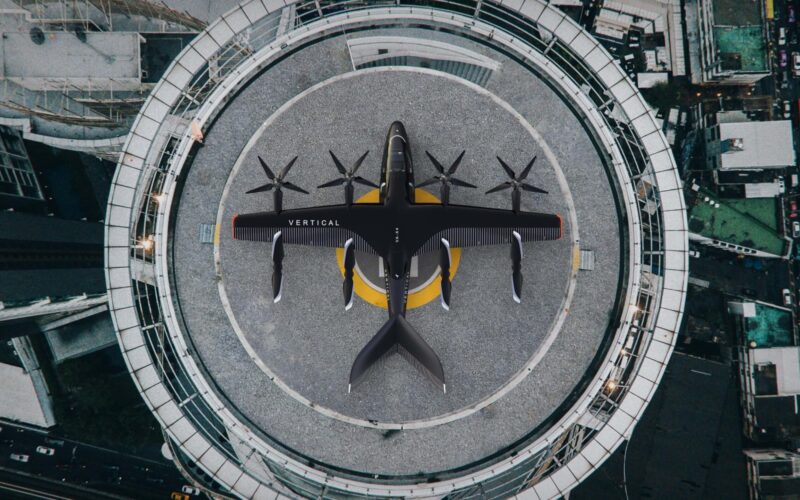The founder of the British eVTOL startup Vertical Aerospace has admitted that he thought the company would be flying sooner.
Stephen Fitzpatrick, who was speaking at RevolutionAero in Dublin on April 25, 2023, told the audience of Advanced Air Mobility (AAM) experts that certification was something he was unaware of when he launched the startup in 2017.
“When we started Vertical Aerospace, we didn’t know about certification, we thought we will be flying in a few years,” he explained at the two-day event.
Fitzpatrick had been invited to speak at the event on “Revolutionising Urban Air Mobility and electrifying air travel,” and answered questions from the event’s moderator.
Vertical Aerospace is seen as one of the leading eVTOL developers in the world, particularly after the startup was granted the first electric vertical take-off and landing Design Organization Approval (DOA) by the UK’s Civil Aviation Authority (CAA) in March 2023.
The approval means Vertical Aerospace can continue to progress with the certification of the VX4 eVTOL aircraft.
Fitzpatrick counts American Airlines, Virgin Atlantic, Japan Airlines, and GOL as just some of his customers.
The former Formular1 team owner told the industry audience that the project started after he realized how much he was traveling in 2016.
“I was really passionate and motivated by decarbonizing travel and it’s one of the hardest industries to decarbonize,” Fitzpatrick explained.
The entrepreneur also told his aviation peers that he believes electric power is the best option currently available to Vertical Aerospace, but a switch to hybrid could be part of a long-term solution.
“To begin with it’s going to be electric. I am a big believer in Sustainable Air Fuel (SAF) and hybrid, but I believe the battery power trend is the first step. I believed eVTOLs was the best application of this technology,” he said.
Fitzpatrick also emphasized that the eVTOL relies on safety and must move at a steady pace to ensure the public is onboard.
“There’s still a lot to overcome both from a regulatory and a passenger acceptance perspective. The biggest risk to our industry is a safety incident. There’s a reason air travel is the safest and it’s because we are very, very cautious,” Fitzpatrick said.

